When intelligent, informed and rational people make a choice that onlookers can see confounds their own declared interests, we are wise to look to psychiatry for an explanation. This is where my thoughts turn, now that Tory Brexiteers have conspired to block Theresa May’s road from Chequers to the deal the Commons so spectacularly rejected this week.
Until the last minute, I hesitated to accept the Tories’ European Research Group would join this rebellion. Cautiously I inserted ‘probably’, ‘by all accounts’ and ‘apparently’ into every column I drafted. That hardline Brexiteers would in the end want to kill the Prime Minister’s deal didn’t make sense.
We Remainers have been unable to believe our luck. Even as Leavers have crossed their hearts and hoped to die, even as David Davis, then Boris Johnson, then Dominic Raab, sacrificed their own cabinet seats to try to stop her, I’ve held my breath and thought, ‘If it hasn’t dawned on them yet, it surely will: they’re imperilling their own project.’
‘As the critical hour approaches,’ I’ve thought, ‘they must surely see this.’ If the logic was staring me in the face, surely it would stare them in the face too.
Let me take you briefly through that logic. Remainers have regarded the post-29 March ‘implementation period’ in May’s deal with horror. We’ve assumed the Brexit-eers would mobilise within minutes of Britain’s formal exit, and start agitating to get out of the ‘vassalage’ the interim agreement creates — and would easily bring much of the media and every Leave voter on board. ‘This isn’t real Brexit,’ they’d say, and they’d be right. They’d have won that argument before they started.
True, the dreaded backstop would have to be kicked unilaterally aside if we were to emerge from the implementation period and leave the customs union, but it would have to be kicked aside anyway if we leave without a deal, so Brexiteers must already contemplate that. And as they’re unlikely to secure a no-deal exit (there being such a determined majority against it at Westminster), why not settle for the deal and then wreck it later, once we’re over the line?
Try as I might to fault the logic of ‘May for now’ as the Leavers’ best strategy, I cannot. Do they really, at the deepest level, fault that logic?
So now I lead you to the psychiatrist’s couch. Could it be that Leavers don’t really, unconsciously, want to leave at all? A bold assertion, but it does explain their behaviour as no other attempted explanation does.
A new production of Anton Chekhov’s The Three Sisters opens at the Almeida theatre in London this April. If you know the play, you’ll be familiar with a sub-theme. The three sisters dream of returning to Moscow. They always have. They were happy there once — or seem to remember that they were — and the return to Moscow has become a permanent part of their imagination. They do genuinely believe it’s what they want. Only as the play proceeds does the audience come to understand that they will never return to Moscow, and in their secret hearts have no settled intention of organising it.
Many of us will remember forever the shock on Boris Johnson’s face when the news hit him that Leave had won the referendum. Some of us sensed the same shock in Michael Gove. I put it to you that for leading Brexiteers there was in some strange way the unsettled feeling that it was never meant to be like this. Theirs was the righteous cause that cannot, in the end, prevail. Some of them had given their whole careers to the perpetual struggle. Like Manichaeans, who see the universe as an unending contention between darkness and light, Leavers have held aloft the torch but never expected to abolish the shadow. The struggle gave their life a meaning: a meaning of which actual victory, and the messy compromises that most victories disintegrate into, risked robbing them.
The realisation of an ideal can so often spoil it. It is possible to seek success yet fear it. Which of us has not entertained an impossible dream, been in love with an idea of consummating a relationship with someone we’ve longed for from a distance, only to find that when that intimacy is actually within reach we’ve lost our nerve. Ah the relief of being stood up at the last moment! Heaven save us from the Promised Land.
Thus we may explain both the curious joylessness and the dearth of any positive plan that seems to have characterised the Leavers since they ‘won’. Many will be secretly relieved that no deal may never be road-tested. Opposition has always come more easily to them, and May’s deal offers them something to fight. I even wonder whether, deep in their unconscious, they would relish fighting and losing a second referendum: at once renewing their lease on victimhood and a sense of injustice for years to come.
For them the EU was a wonderful explainer of the world. All our failures began in Brussels. Released, British workers would bound like the Singaporean Chinese into the world-beating strivers we really are. Except that in moments of candour, Leavers know that’s tosh. And the moment when it might be tested seemed to approach. After 29 March, the ball would be in their court.
If I’m right, Brexiteers have funked it. In their failure to support May’s deal I see not a miscalculation, not overconfidence, but a failure of nerve. They have sunk the only real chance they had of starting, post-29 March, a journey towards the new dawn they had promised but subliminally begun to doubt. Now that promise will remain virgin, unsullied. And it will all be — as it always has been with Brexiteers — somebody else’s fault. In a weird way, Leavers will sleep a little easier this weekend. It’s out of their hands now. They tried their very best but others have let them down. An oddly comforting thought, really. Their dream remains intact, their explanation of the world unchallenged.
Got something to add? Join the discussion and comment below.
Get 10 issues for just $10
Subscribe to The Spectator Australia today for the next 10 magazine issues, plus full online access, for just $10.
You might disagree with half of it, but you’ll enjoy reading all of it. Try your first month for free, then just $2 a week for the remainder of your first year.


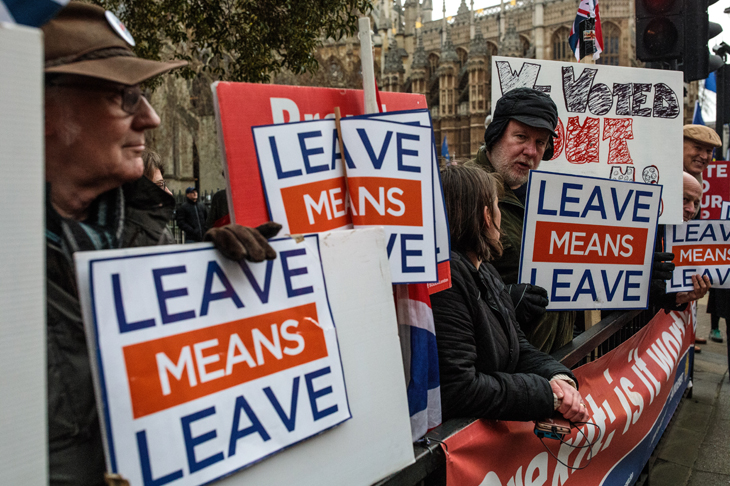

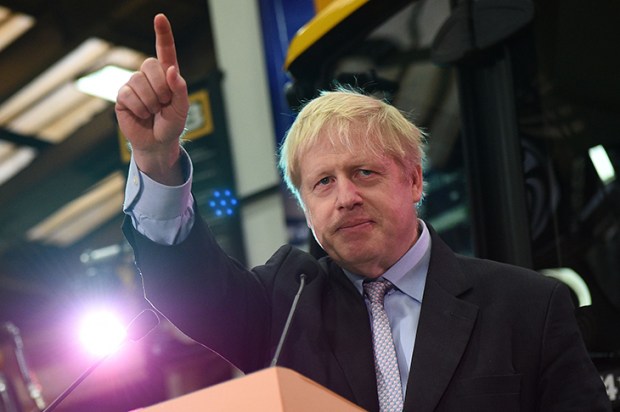
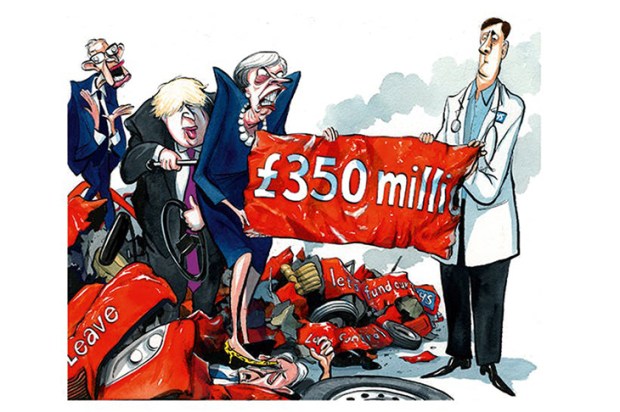
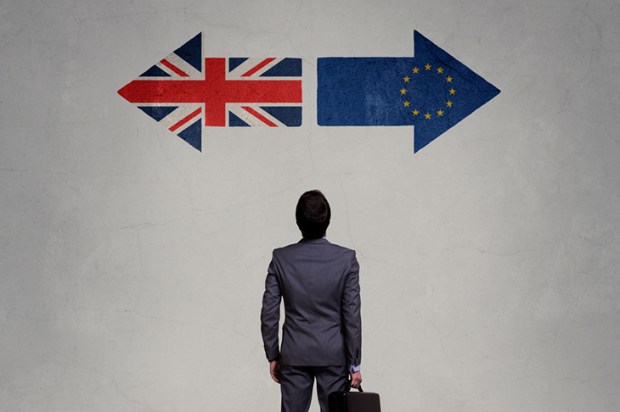
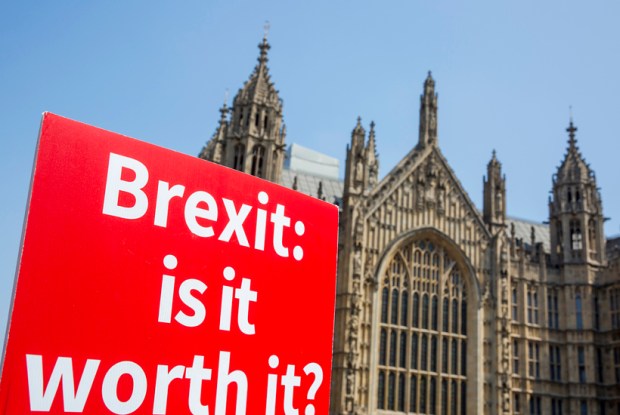
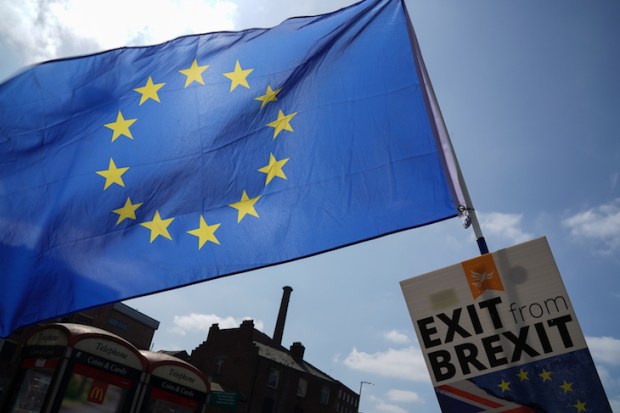






Comments
Don't miss out
Join the conversation with other Spectator Australia readers. Subscribe to leave a comment.
SUBSCRIBEAlready a subscriber? Log in